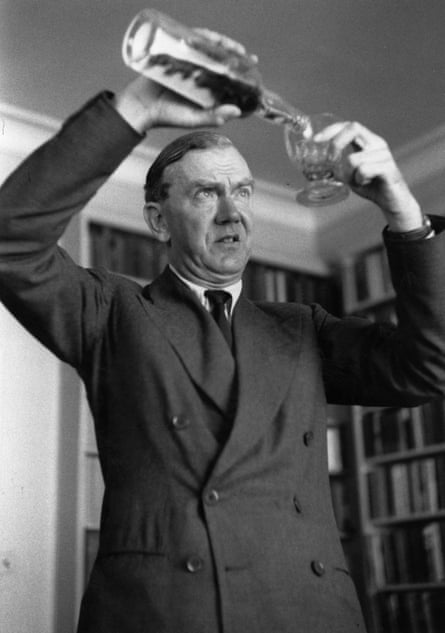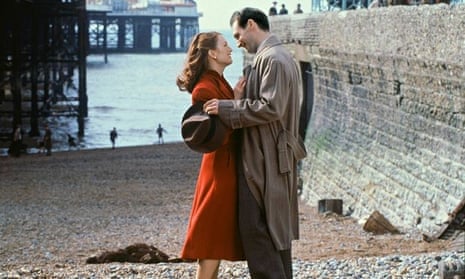There are many Greenes, and almost all of them – the thriller writer (The Third Man), the entertainer (Our Man in Havana), the contemporary political novelist (The Quiet American), the polemicist (The Comedians) and the serious religious writer (The Power and the Glory) – deserve consideration in this series. I’ve chosen The End of the Affair because it blurs the line he drew between his “entertainments” and his more serious work. The novel owes its inspiration to the conventions of romantic fiction while at the same time transcending genre. Crucially, it dates from Greene’s best years, the age of postwar austerity that also nurtured the previous author (No 70) in this series, George Orwell.
Set in Clapham during the blitz (before the war, Greene owned a house in Clapham), it’s a story of adultery. Maurice Bendrix, a second-rank novelist, wants to write about a civil servant, and makes the acquaintance of his neighbour’s wife, Sarah. They fall in love and have an affair tortured by his jealousy and her guilt. When Bendrix is nearly killed by a bomb (Greene’s house was similarly wrecked during the blitz), his mistress suddenly breaks off relations. Only in retrospect will the meaning of this inexplicable act of rejection become apparent.
Two years pass. Sarah’s husband, Henry, who is ignorant of the affair, approaches Bendrix about his wife’s infidelity with “a third man”. Intrigued, the novelist employs a private detective to investigate. Having said, at the outset, that “a story has no beginning or end”, Greene now employs a dizzy mix of flashback, stream-of consciousness and conventional narrative, partly based on Sarah’s diary, to relate how she, having prayed for a miracle, “catches belief like a disease”, and then subsequently dies. The “third man”, a recurrent figure with Greene, turns out to be God, for whom Sarah has become “a bride in Christ”. This supernatural, Roman Catholic element of the plot has not worn well, but the portrait of wartime London, and the agony of two people caught in an illicit love affair, remains compelling.

A note on the text
The End of the Affair
The End of the Affair is the fourth and final Greene novel with an overtly Roman Catholic dimension. (The others are Brighton Rock, The Power and the Glory and The Heart of the Matter.) About a year after its publication Greene told Evelyn Waugh that he wanted to write a political novel. It would be fun to deal with politics, he said, “and not always write about God”. Waugh’s response was characteristically sharp and practical. “I wouldn’t give up writing about God at this stage if I was you,” he replied. “It would be like PG Wodehouse dropping Jeeves halfway through the Wooster series.”
Waugh’s review of The End of the Affair of 6 September 1951 in the magazine Month stands up well to the test of time. In his new novel, writes Waugh, “Mr Greene has chosen another contemporary form, domestic, romantic drama of the type of Brief Encounter, and has transformed that in his own inimitable way.” Waugh added that the story was “a singularly beautiful and moving one”.
This, perhaps, explains its continued appeal. The novel has been filmed twice (in 1955 and 1999). William Golding, who has yet to appear in this series, ignored the religion and accurately described Greene as “the ultimate chronicler of 20th-century man’s consciousness and anxiety”.
Three more from Graham Greene
The Confidential Agent (1939); The Power and the Glory (1940); The Quiet American (1955).
The End of the Affair is available in Vintage (£8.99). Click here to order it for £7.19

Comments (…)
Sign in or create your Guardian account to join the discussion